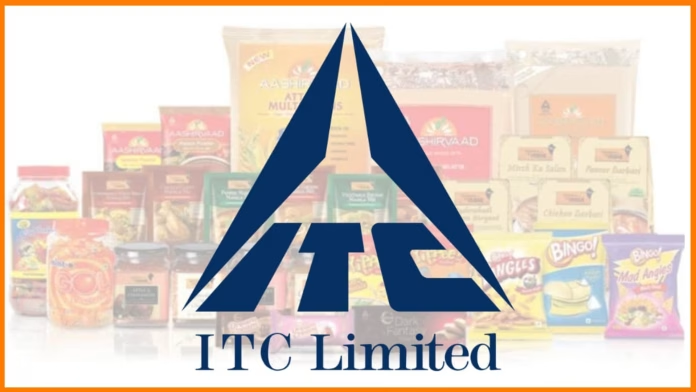On Monday, ITC, a conglomerate involved in both cigarettes and hotels, announced a 16 percent increase in its combined net profit. The figures show a consolidated net profit of INR 5,180.12 crore for the quarter ending on June 30, 2023. This is in comparison to the INR 4,462.25 crore consolidated net profit recorded in the same quarter of the previous fiscal year, as stated in a BSE filing.
Nevertheless, the company’s operational revenue witnessed a decline to INR 18,639.48 crore in the first quarter of FY24, in contrast to the INR 19,831.27 crore reported in the first quarter of FY23.
According to the regulatory filing, the conglomerate’s combined overall expenditures decreased to INR 12,421.77 crore in the first quarter of FY24, down from the total expenses of INR 14,201.51 crore recorded in the first quarter of FY23.
In a media statement, the company noted that while certain commodities experienced price moderation due to a high base from the previous year, overall, input costs remained higher compared to pre-pandemic levels.
The company’s various business sectors persisted in enhancing profitability through a range of approaches, including premiumization, optimizing the supply chain, prudent pricing strategies, digital endeavors, strategic cost control, and leveraging fiscal incentives.
ITC’s FMCG divisions have experienced strong expansion in both urban and rural markets. This growth has been propelled by valuable consumer insights, purposeful innovation, upgrading the product portfolio, expanding distribution networks, effective last-mile implementation, and harnessing digital projects.
According to a media statement, the company reported that it achieved significant progress in both conventional and emerging channels, which encompass modern trade (MT), e-commerce, and quick commerce. This momentum was generated by the effective implementation of channel-specific business strategies, partnerships, tailored product assortments tailored to a wide range of consumer preferences, and targeted approaches to selling specific product categories.
ITC has revamped its trade marketing and distribution system into an intelligent omnichannel network, encompassing six direct-to-consumer (D2C) platforms. Furthermore, the company’s dedicated D2C platform, the ITC e-Store, has expanded its operations to cover more than 24,000 pin codes during this period.
The company’s digitally enabled eB2B platform, UNNATI, now spans across more than 570,000 outlets. This platform facilitates direct interaction with retailers, offers analytics, provides personalized suggestions for hyperlocal product assortments derived from consumer purchasing trends, and fosters a more profound connection with the brand.
Aligned with its strategy to explore value-added opportunities through core brands, ITC’s branded packaged foods division introduced several distinctive variations of Rava and various other products.
Inspired by the Government of India’s campaign to boost the consumption of millets and recognizing 2023 as the ‘International Year of Millets,’ ITC has adopted a targeted approach to create a diverse range of millet-based products suitable for various occasions, age groups, and formats.
Throughout the quarter, Mangaldeep Agarbattis and Dhoop achieved significant growth through the utilization of a product lineup that centers around a diverse array of distinctive offerings.
ITC experienced a 10.9 percent growth in net segment revenue and a corresponding 11.2 percent increase in segment PBIT on a year-over-year basis. The company’s cigarettes business remains committed to combating illicit trade while strengthening its market position. This is achieved through a strategic approach that includes innovative product offerings, making premium experiences accessible to a wider audience, ensuring product availability through effective on-ground execution, and recently introducing unique product variations to sustain strong performance in this segment.
The company highlighted in its media presentation that, as observed in previous instances, maintaining stable cigarette taxes and implementing effective measures by enforcement agencies have consistently facilitated a rebound in volumes for the legal cigarette sector. This has resulted in increased demand for Indian tobacco and contributed positively to the revenue generated by the tobacco sector, benefitting the exchequer.





